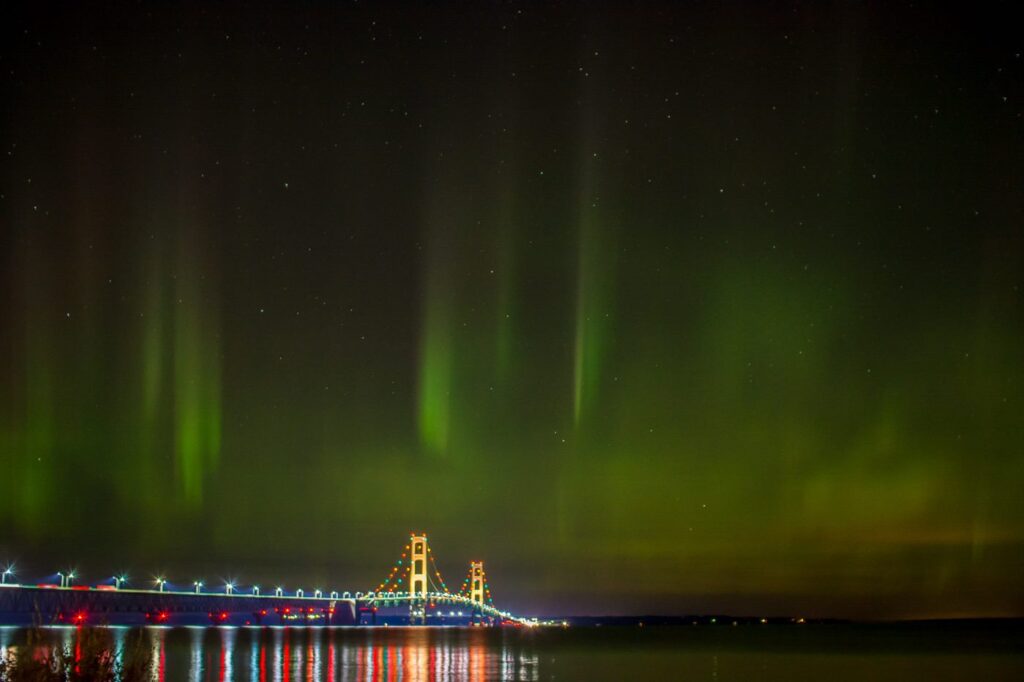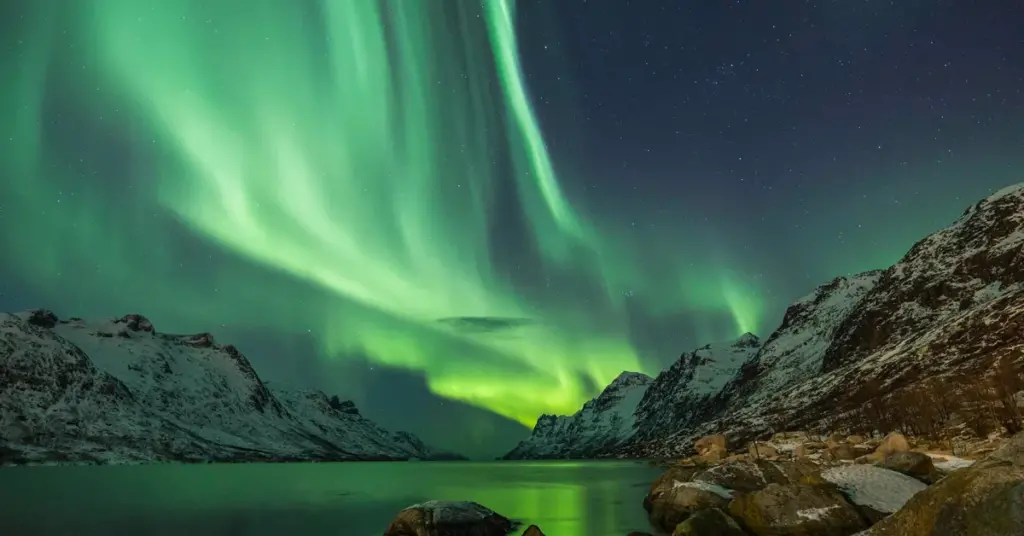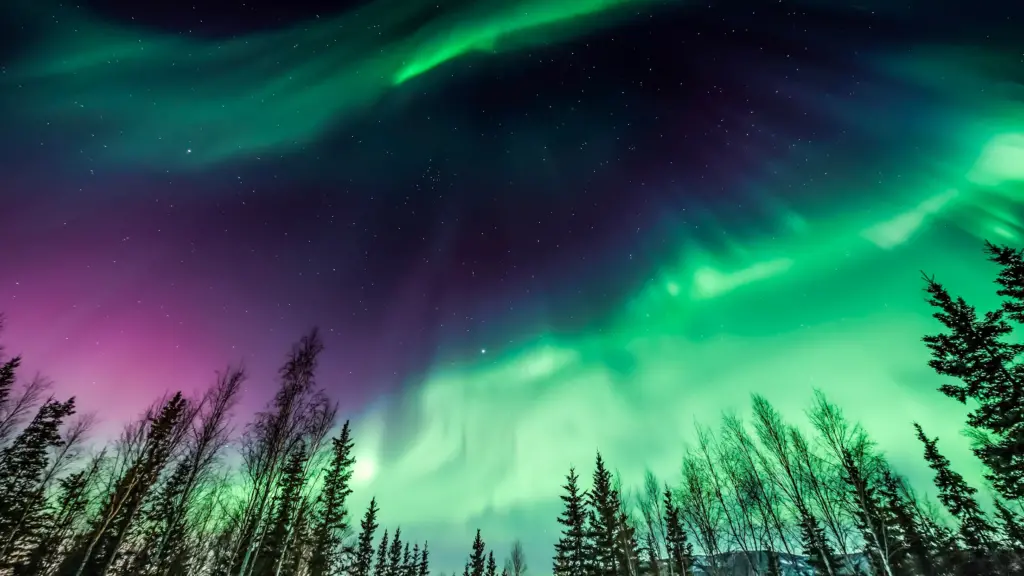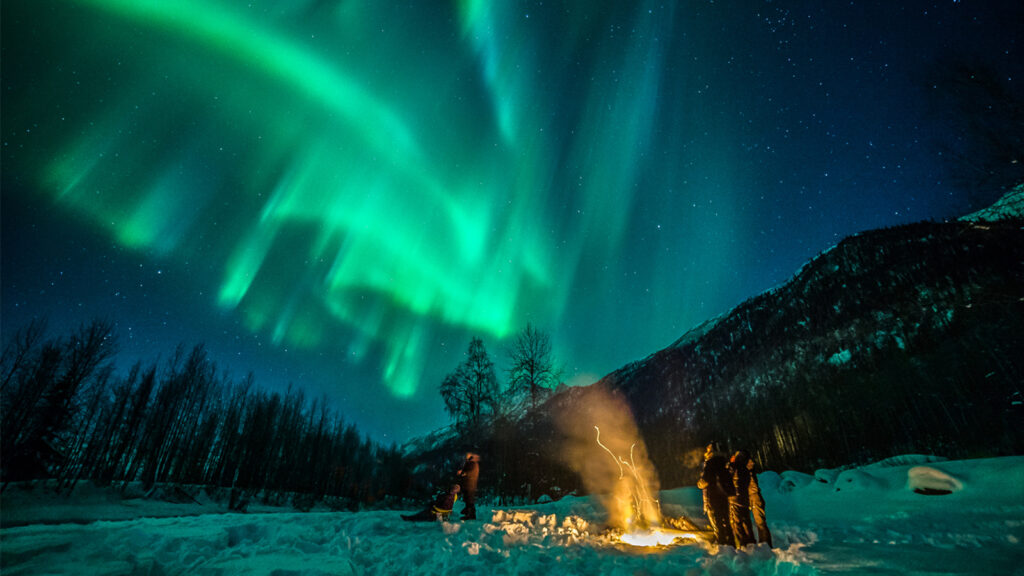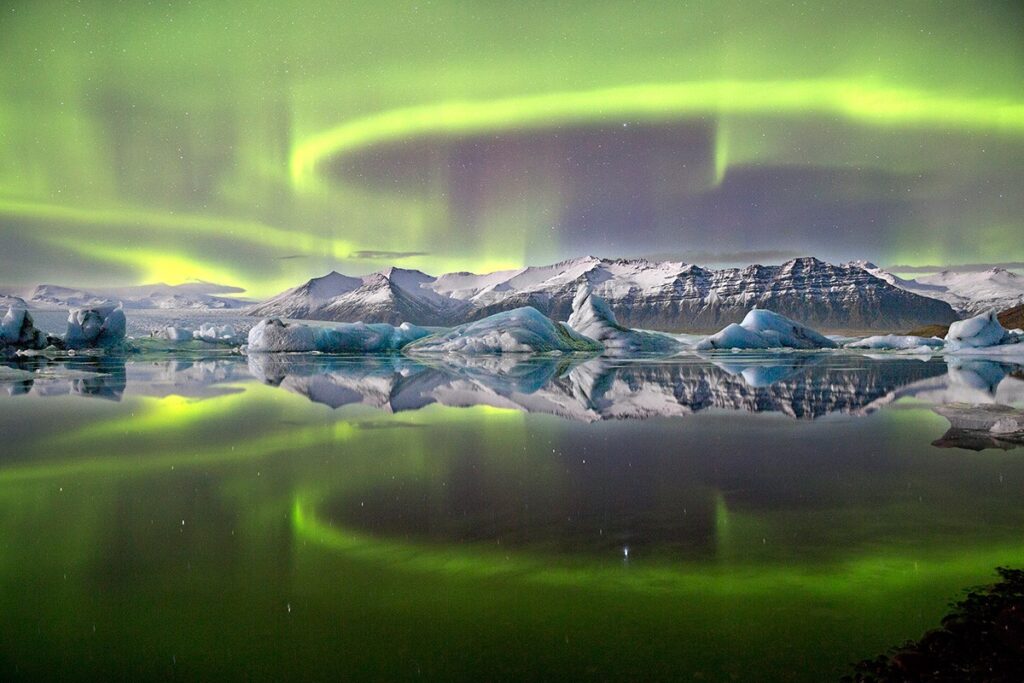Introduction
The Aurora Borealis, a celestial ballet of lights, is a phenomenon that has fascinated sky gazers for centuries. For residents of Michigan, a state defined by its Great Lakes and diverse landscapes, the question arises: Where Can You See Aurora Borealis in Michigan, the Wolverine State? Let’s embark on a journey to explore the possibilities of encountering this cosmic spectacle amidst Michigan’s natural wonders.
Understanding Aurora Borealis
Before diving into the specifics, understanding the Aurora Borealis is crucial. This natural light display, created when charged solar particles interact with Earth’s magnetic field, transforms the night sky into a mesmerizing canvas of colours.

Aurora Borealis Locations Worldwide
While traditionally associated with high-latitude regions, Michigan‘s unique geographic features make it an intriguing destination for Northern Lights enthusiasts.
| ℹ️ Read More: | Where Can You See Aurora Borealis in Wisconsin? |
Geographic Factors in Michigan
Given Michigan’s northern latitude and proximity to the expansive Great Lakes, the conditions for witnessing the Aurora Borealis are favourable. Understanding specific geographic factors, such as elevation and proximity to darker areas, can enhance the chances of a sighting.

Best Times to Witness Aurora Borealis in Michigan
While Michigan may not be a prime location for Aurora sightings, specific times during heightened solar activity, typically during fall and winter, present opportunities for residents to witness the lights. Monitoring solar forecasts is key to maximizing the likelihood of a sighting.
Ideal Weather Conditions
Clear skies are essential for any Aurora Borealis sighting. Monitoring weather forecasts and choosing nights with minimal cloud cover contribute to an optimal viewing experience in Michigan.
Top 5 Potential Places Where You Can See Aurora Borealis in Michigan
Sleeping Bear Dunes National Lakeshore
The vast and dark skies over Lake Michigan from Sleeping Bear Dunes offer a stunning backdrop for potential Northern Lights sightings.

| ℹ️ View More |
| 🏡 Best Places to Stay Near Sleeping Bear Dunes National Lakeshore |
Headlands International Dark Sky Park
As a designated Dark Sky Park, Headlands offers optimal conditions for stargazing, making it an excellent spot for potential Aurora Borealis sightings.

| ℹ️ View More |
| 🏡 Best Places to Stay in Headlands International Dark Sky Park |
Porcupine Mountains Wilderness State Park
Michigan’s Upper Peninsula provides a secluded setting at Porcupine Mountains, away from urban lights, enhancing the visibility of the Northern Lights.

| ℹ️ View More |
| 🏡 Best Places to Stay in Porcupine Mountains Wilderness State Park |
Mackinac Island
The historic Mackinac Island, surrounded by the dark waters of Lake Huron, offers a unique setting for potential Aurora Borealis viewing.

| ℹ️ View More |
| 🏡 Best Places to Stay in Mackinac Island |
Pictured Rocks National Lakeshore
Along Lake Superior’s shoreline, Pictured Rocks National Lakeshore provides opportunities for witnessing the Northern Lights against the backdrop of stunning rock formations.

| ℹ️ View More |
| 🏡 Best Places to Stay in Pictured Rocks National Lakeshore |
Factors Influencing Northern Lights Visibility in Michigan
Solar Activity and Michigan’s Skies
Monitoring solar activity becomes crucial for increased chances of witnessing the Northern Lights in Michigan. Solar maximum years, occurring approximately every 11 years, mark periods of heightened solar activity, creating optimal conditions for celestial displays.
Geographic Considerations
Michigan’s diverse geography, from lakeshores to wilderness parks, offers a range of potential locations for Northern Lights visibility. Choosing spots with minimal light pollution and expansive views enhances the overall experience.

| ℹ️ Read More: | Where Can You See Aurora Borealis in Wisconsin? |
Conclusion
While Michigan may not be as famous as some Northern Lights hotspots, exploring locations like Sleeping Bear Dunes, Headlands, Porcupine Mountains, Mackinac Island, and Pictured Rocks may reveal the celestial beauty of the Aurora Borealis against the Michigan night sky.
Frequently Asked Questions: Where Can You See Aurora Borealis in Michigan?
Q: Can you see the Northern Lights in Michigan?
A: While sightings are not guaranteed, Michigan, especially in dark and remote locations, may offer a chance to witness the Northern Lights during geomagnetic storms.
Q: When is the best time to see the Northern Lights in Michigan?
A: The prime time for potential Northern Lights sightings in Michigan is during the winter months, with increased activity during solar maximum years.
Q: Where are the best places in Michigan for Northern Lights viewing?
A: Sleeping Bear Dunes National Lakeshore, Headlands International Dark Sky Park, Porcupine Mountains Wilderness State Park, Mackinac Island, and Pictured Rocks National Lakeshore are top spots offering potential Aurora Borealis sightings.
Q: Why is Michigan suitable for Northern Lights viewing?
A: Michigan’s diverse geography, including lakeshores and wilderness areas, provides a variety of potential locations for witnessing the Northern Lights.
Q: How does solar activity impact the visibility of the Northern Lights in Michigan?
A: Increased solar activity, especially during solar maximum years, enhances the chances of witnessing vibrant Aurora Borealis displays in Michigan.

